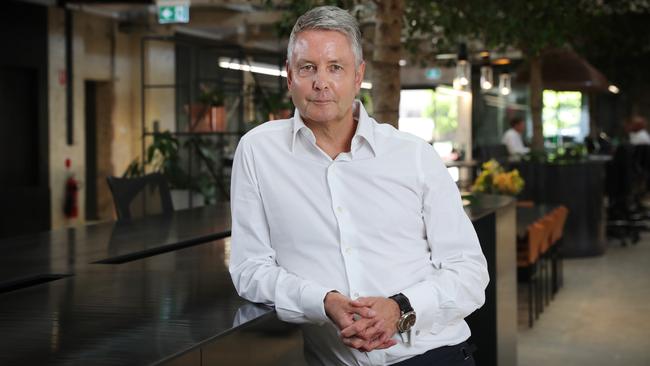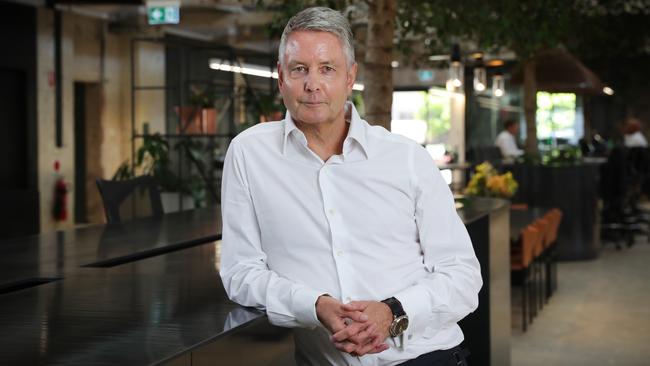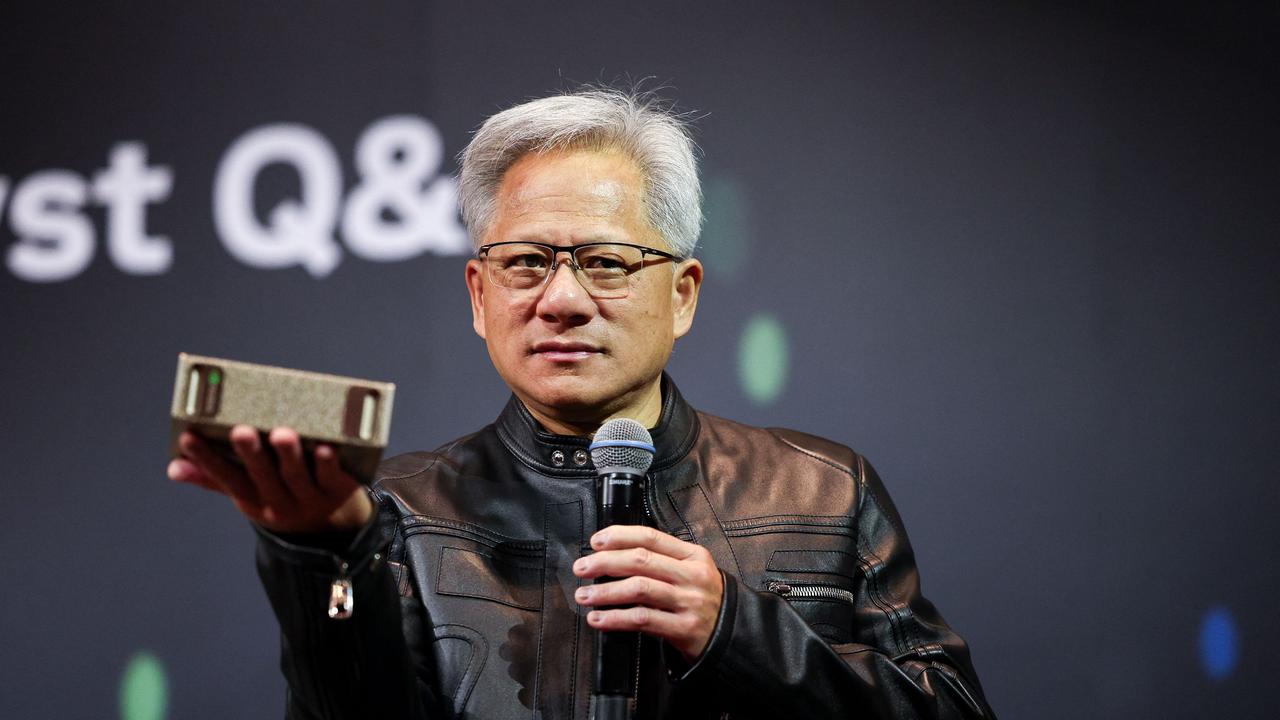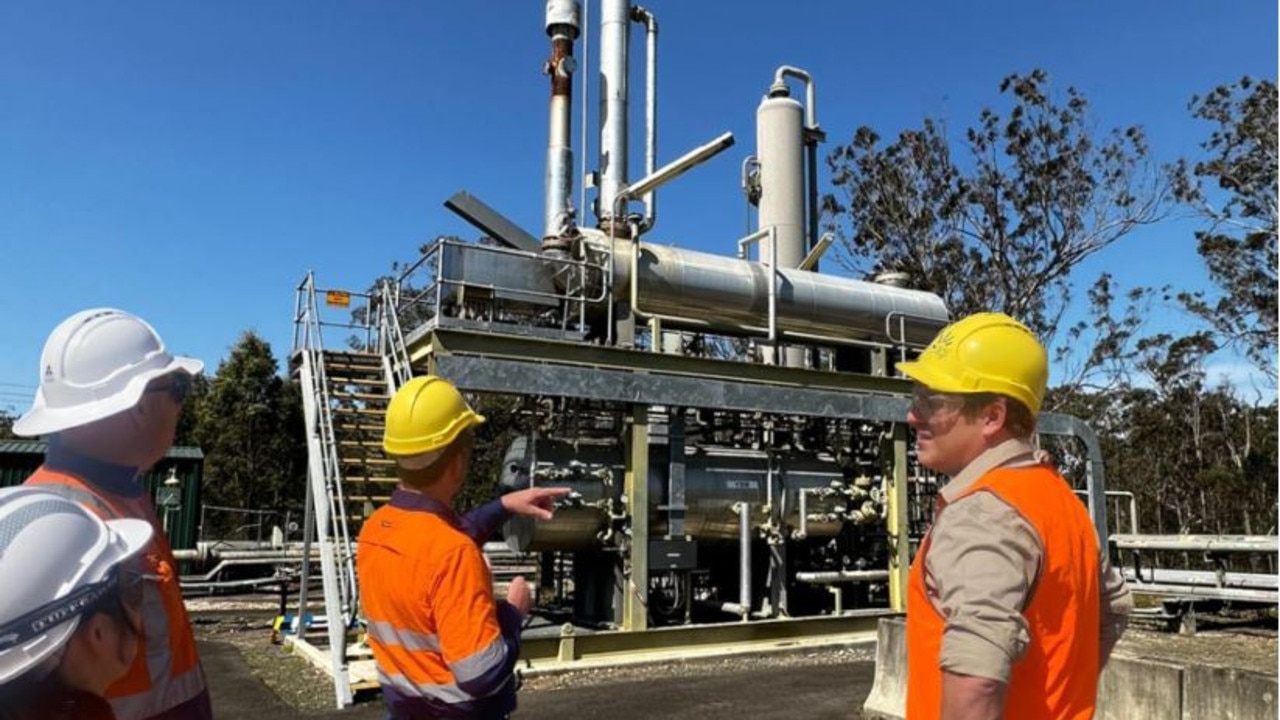Goodman targets industrial revolution with data centres, robot-run warehouses by using AI
The industrial property giant is getting set for the next wave of AI demand and is chasing new sites that can accommodate massive data centres and high technology warehouses.

Business
Don't miss out on the headlines from Business. Followed categories will be added to My News.
Industrial property giant Goodman Group is doubling down on its pivot into data centres but has been unable to escape the chill winds of geopolitical tensions and the Chinese property slow down.
The company confirmed that its $85bn empire was on track, and it was locking in new partners to back its huge logistics and data centre projects, but warned that its industrial portfolio was being hit by uncertainty around international trade.
Goodman cautioned that the uncertain economic and trade environment was causing delays among tenants in logistics but said that companies were still demanding top warehouses in tight markets in global capitals.
Group chief executive Greg Goodman said capital was “taking its time” as investors were cautious about global trade, but the company was using the period to restock. “We are using this time to take advantage of the current market by acquiring large-scale sites which will be future long-term regeneration opportunities,” Mr Goodman said.
The company has $6.3bn of firepower to chase large assets, and Mr Goodman said it would keep teaming up with major infrastructure and real estate investors to provide long-term capital.
“There’s an opportunity on one side, but you’ve got to be realistic to adjust your programs, particularly around capital, where people want to be a bit more cautious with what’s going on around the world and see a little bit more settlement in regard to, certainly, what’s happening with trade,” he said.

Mr Goodman called out the tougher climate for developers, saying some did not have the funding to keep going with their projects. “I think the financial risk around data centres and other developments as well, where you’re building into programs where there is less capital available as well, you’ll find there’s going to be some things that don’t work out terribly well for people,” he said.
There is also a scramble or resources to back the power-hungry assets. “The complexity around power is extreme in different parts of the world. This is a game where you need a lot of money, and you need a lot of long term capital, and that’s what we’re doing right at the moment,” he said.
Goodman is capitalising on the pullback by its rivals that rely on bank finance. “We are getting access to some really good regeneration sites that maybe a year or two ago, there was everyone doing it. Now they’re not.”
Mr Goodman flagged a further big shift to come with more automation in warehouses. “I think you’ll find fundamentally inside ten years, there won’t be anyone in our warehouses. They will be dark and there’ll be robotics with a bunch of engineers,” he said.
Mr Goodman said big companies were still bolstering their supply chains by shifting to high technology centres, and there was a lack of new supply in many markets.
He called out the weakness in the Chinese property market, where the group has an exposure, but sees plenty of opportunities to grow in other parts of the world.
Mr Goodman pointed to potential redevelopments of the company’s existing sites, including multistorey warehouses, and alternative uses, such as data centres and even residential projects, that are starting to stack up again. Goodman sells off sites to apartment developers when it rezones land in major cities.
“Our development activities are forecast to continue to provide attractive margins, relative to risk, with locations expected to continue to drive rental growth and maintain high occupancy rates across the portfolio,” Mr Goodman said.
The company remains a believer in the AI revolution which is transforming demand for data globally, despite the difficulties in getting suitable land in some cities. Large tech companies are stepping up their spending on hyperscale centres and are forecast to drive demand for new facilities at a time when supply remains tight.
Goodman expects to kick off new data centres around the world over the next 12 months, which will boost its work-in-progress.
The company has been working on new joint ventures after raising $4bn of equity in February as its share price peaked amid the market frenzy over data centres. Mr Goodman flagged new joint ventures and partnerships in data centres and logistics, spurring Goodman’s global growth.
The company famously slashed debt and sold off secondary industrial sites, leaving it cashed up to get into data centres ahead of many rivals, and is still backed by big pension funds. “The group will consider its ownership participation as appropriate. The accretive rotation of our capital will remain a key strategy to fund sustained earnings growth over the long term,” Mr Goodman said.
Goodman confirmed forecast fiscal 2025 operating earnings per security growth of 9 per cent and a full year distribution of 30c per security, potentially disappointing some investors that had hoped for an upgrade or a new fund launch.
The company’s property empire has grown to $71.8bn in external assets under management, and the bulk of development is being undertaken in partnerships or for major pension funds. The model has seen it grow to almost 400 properties in managed partnerships around the world, in markets ranging from Australia, Europe, the US to much of developed Asia.
The total portfolio grew to $85.8bn, and the company said its external assets were expected to lift once a new partnership in North America was finalised. The company said
capitalisation rates used to measure property values had stabilised in most regions except China.
Goodman has secured more power across major global cities and will kick off projects in eight metropolitan areas across America, Europe, Japan, Australia and Hong Kong.
Its development book is running at an annualised production rate of $6.2bn, and new projects are yielding about 9 per cent. Most are either pre-sold or backed by global pension funds.
The company flagged that it was keen to keep capitalising on the wave of demand for cloud-based technologies and companies taking their data off-premises, as well as greater demand for AI services.
Citi analysts said customers were pausing on decisions, which has resulted in developers slowing, allowing Goodman to take advantage of lower competition on key sites.
More Coverage
Originally published as Goodman targets industrial revolution with data centres, robot-run warehouses by using AI





